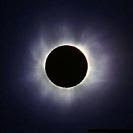I haven't been posting much lately because I have been trying to learn kanji. These are the Chinese characters that are in use in Japan, and once a Japanese person has left high school they are supposed to have learnt a select 1945, although there are many more. These kanji are the most commonly used and are usually taught in order of difficulty. It takes six years, I think, to learn them all and the main method is copying them out hundreds and thousands of times.
Suffice to say I don't have six years to spend trying to get literate. I think most Japanese learners initially think to themselves that they can just learn the speaking part, or at the very least the two alphabets which are used in conjunction with kanji, hiragana and katakana. However, it seems apparent that to read anything at all you need to learn them. All of them. They are mostly used in combinations of two or more, meaning learning individual ones now and then won't help much.
So I found a method, and am studying hard. I know it sounds surprising, but I think anything done on a computer is enjoyable, so it seems not so bad.
I am using this book, Remembering the Kanji by James Heisig, and his method is to learn them all at once, by making up an imaginative story containing the smaller constituent radicals in the kanji. The characters are often made up of combinations of other kanji, and through these you can invent a mnemonic. This is quite normal and common, I think, however he also advises not to learn the Japanese readings at first, but just to link it to one single English word, which contains at least one of the meanings the kanji conveys. To learn everything about one kanji is too difficult, so you kind of break the work down into meaning and reading.
So, I'm almost there, amazingly. I've learnt how to write 1400 kanji, and learnt one single meaning in English for each one, and it only took six weeks. I'm giving myself until March to learn the other 600. However, just using this method with pen and paper would be almost impossible, so this website comes into play; Reviewing the Kanji uses a Leitner flashcard system, which tests you on the keywords in progressively longer and longer intervals. This means that cards you are good at don't get tested often, saving time, whereas those which you have trouble with seem to come up very often.
Right, so what good is that, I still can't read. Well now I will have something to hang the sound of a kanji on, namely a story and a meaning. Kanji won't be a tangle of unrecognisable line and dots anymore. Also I'll be able to guess the meaning of words using the individual kanji, and I can write them too. So the job won't be done quite yet. Soon I'll have to read a lot of manga and train ads, etc. and learn how the kanjis sound.
At least it won't take six years. Fingers crossed, only six months, because that's all I have.


No comments:
Post a Comment